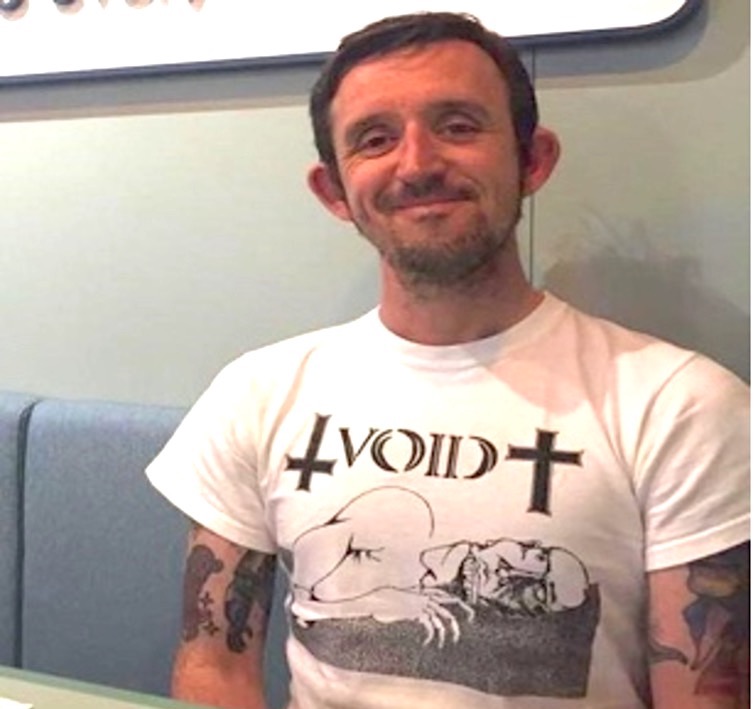
Infinity Pool is the third feature from writer / director Brandon Cronenberg, and as you might expect if you’re a fan of either Cronenberg Jr or Snr, it is an imaginative science fiction / horror hybrid that asks some interesting questions around the nature of wealth, privilege and accountability.
Struggling author James (Alexander Skarsgård) and his wife Em (Cleopatra Coleman) are holidaying in the fictional country of Li Tolqa. Staying in a high-end resort, shielded and fenced off from the local populace, they befriend another couple, Gabi (Mia Goth) and Alban (Jalil Lespert), and sneak out of the resort to enjoy a drunken day at the beach. On their way home, a local man is struck and killed by their car. Panicking, they flee the scene.
The four are promptly arrested and James is informed by the local police that the penalty for his crime is death. However, as a tourist, he may pay a fine and have an exact duplicate of himself created to take his place. James agrees but finds himself fascinated by the grisly spectacle.
James begins to meet regularly with a group of other guests who have been through the same ordeal. Knowing they can get away with anything, the group starts to explore the possibilities their wealth affords them: pushing the limits and testing the boundaries of hedonism and criminality.

As the gap between rich and poor in our society widens to ever more extreme levels, with wealth hoarded by the few and enabled by systems designed to keep it that way, growing discontent can be witnessed in the culture. In the last year alone, Triangle of Sadness, The Menu, and to some degree White Lotus, have all satirised the obnoxious privilege and slimy decadence of the ultra wealthy. So, Infinity Pool is in good company when it tells us the rules do not apply to those with money. To rich resort guests, the law is nothing more than a game to be played and exploited.
Cronenberg plays it straight to begin with, teasing us into believing he’s made some anodyne hit-and-run morality play, or a remake of the risible I Know What You Did Last Summer, before throwing us an absolute curveball of an idea with James’ walking, talking (screaming) avatar. On top of that, Cronenberg serves up some nicely trippy visuals that, combined with his back catalogue, should see him considered a contemporary of other optical agitators like Nicolas Winding Refn or Panos Cosmatos.
Performance wise, Skarsgård is reliably good value as always as the meek James. While Australian actress Cleopatra Coleman is excellent as Em, who is possibly the lone voice of reason and the only half-way likeable character in the entire film. Mia Goth is also good, but more so in the early stages before the rich elite descend into manic villainy.

However, Infinity Pool might have been better served with a shorter, tighter treatment, like an episode of Black Mirror, with which it shares a similarly dystopian outlook. In comparison to Croneneberg’s second film – the blisteringly imaginative and visceral Possessor – it feels smaller and hemmed in by an idea it doesn’t fully explore.
Infinity Pool delves no further into the cloning technology or any of its uses, applications or morality (or lack thereof). It briefly toys with ideas of identity and self, when the group ponders how they would know if the ‘real’ person or the clone was executed. But the thought is bookended and never revisited. It feels like there was more here to dig into, but we never got the chance.
To be clear, Infinity Pool is a good movie. It’s weird in its own right, and full of scathing opinion. It works best in its early-to-mid section, when things are sinister and opaque and more restrained. But following up a film as incredible as Possessor was always going to be a bit of a losing battle, and overall, Infinity Pool doesn’t really pack the same punch as its predecessor.

‘Infinity Pool’ opened in Australian cinemas on May 11th.










